Creative Translation in Educational Contexts in the 2020s
In March 2022 the Translation Exchange and Stephen Spender Trust held a virtual symposium, drawing together panellists who are all engaged with bringing creative translation to young people. We were delighted to be joined by representatives from the main creative translation programmes in the UK and US. The symposium was a unique opportunity to share challenges and successes, and to think together about how we can develop this field and its impact on young people.
Read our report on the symposium discussions: PDF version / PowerPoint presentation
Ever since a translation turn was announced in the 1990s, translation has rapidly evolved as an area of study. With a rising number of translation degree programmes, the proliferation of machine translation and the questions it poses, and the ongoing use of translation in language teaching to assess linguistic competencies, the utilitarian benefits and real-world applications of translation are unquestionable. But where does creativity sit in this dynamic landscape of translation within educational contexts? Translation is an inherently creative activity. However, this aspect might not always be emphasised in the classroom, where notions of equivalence and right/wrong may prevail.
The symposium interrogated the place of creative translation within educational contexts, whether as part of in-school language learning, cross-curricular programmes, or extra-curricular activities, with a particular eye to the context of the 2020s. The beginning of the current decade has been especially eventful. The Covid-19 pandemic, the Black Lives Matter movement, the United States Capitol attack, the end of the Brexit transition period: all have highlighted the stark inequalities within our societies; and all have brought about significant disruption and changes to our lives and to educational contexts. How has this period had an impact on incorporating creative translation into the classroom?
Participants
Panel 1: Research-informed practice in the UK context
Stacie Allan (Stephen Spender Trust/Translation Exchange)
Katrina Barnes (MFL teacher and researcher)
Gitanjali Patel (Shadow Heroes – contributed via written statement)
Panel 2: Creative translation practice in the United States
Eric Fishman (educator and translator)
Mark Hauber (Centre for the Art of Translation)
Nadia Kalman (WWB Campus, Words Without Borders)
Panel 3: Role of Research in Creative Translation
Clémentine Beauvais (University of York)
Sonia Colina (University of Arizona)
Maria González-Davies (University Ramon Llull, Barcelona)
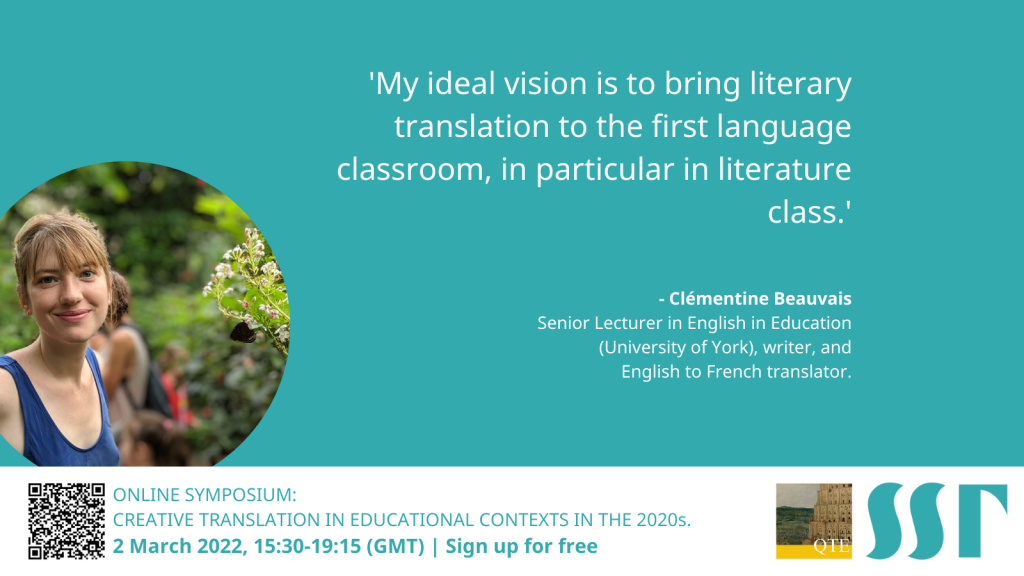

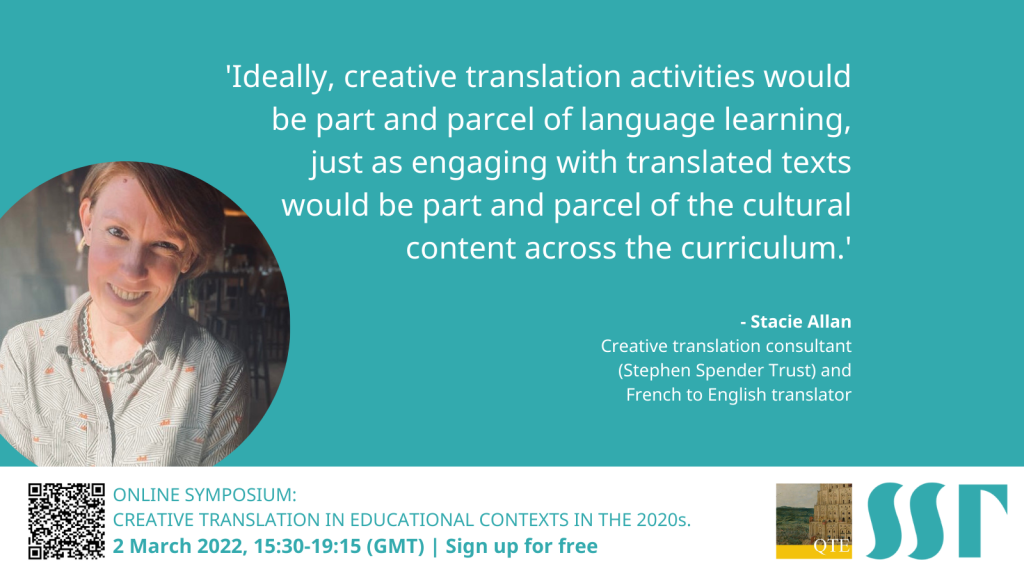
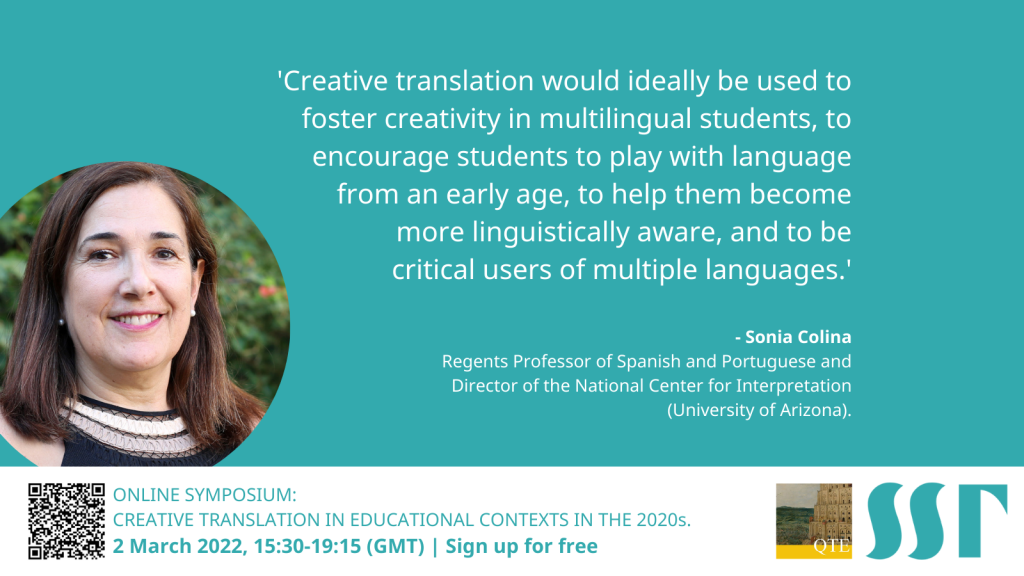
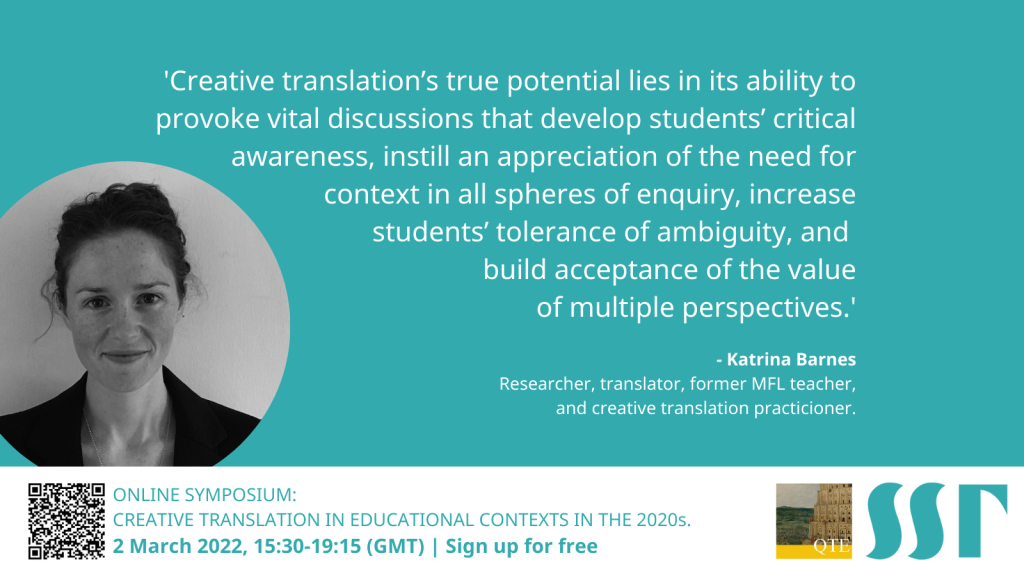
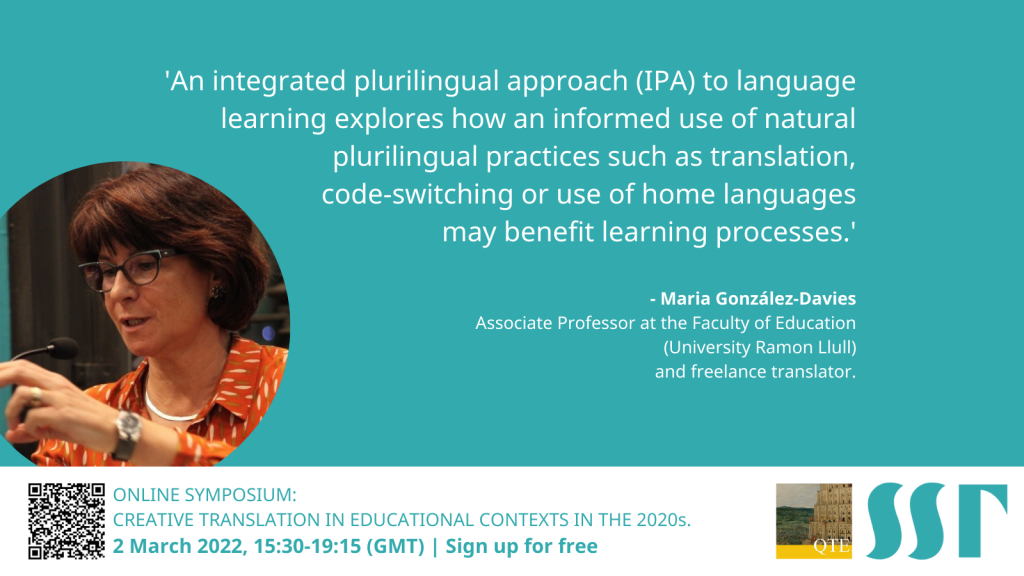
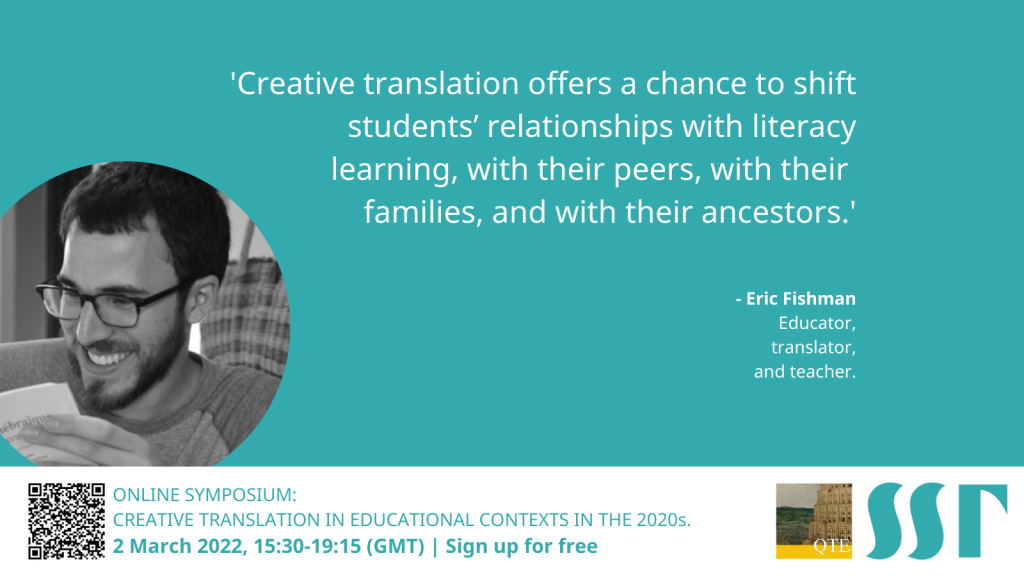
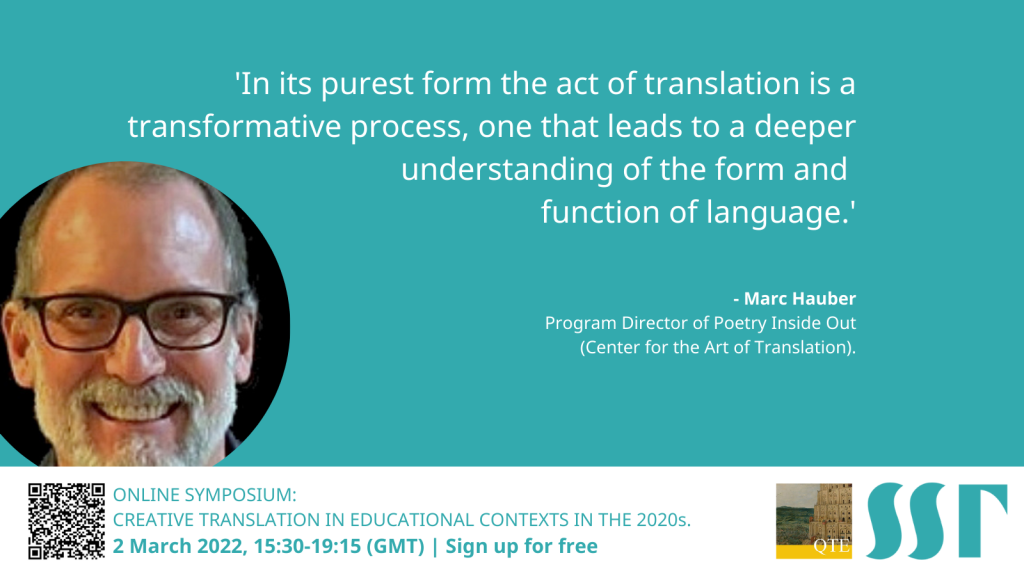
This symposium was the final event in the Translation Exchange’s research project on Creative Translation in the Classroom, supported by the John Fell Fund (University of Oxford) and The Queen’s College, University of Oxford.